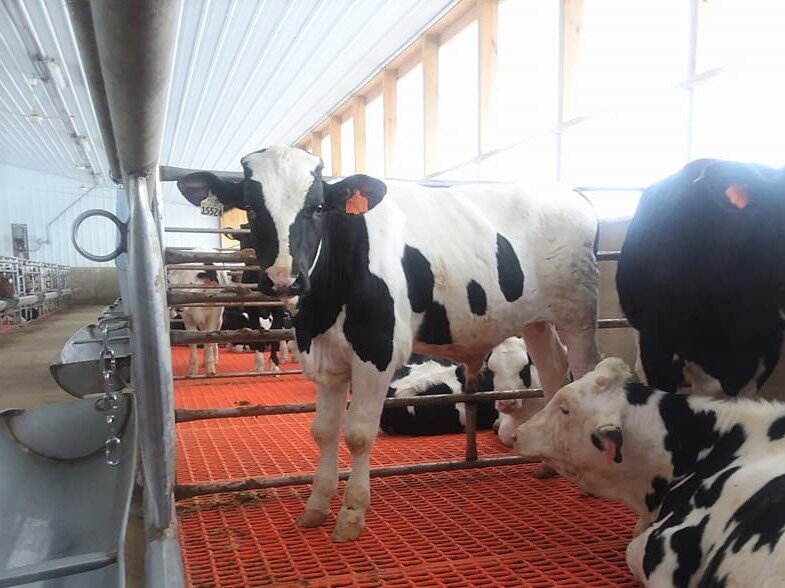Beginning January 1, 2020, all veal meat sold for consumption California – including veal from calves raised outside of the state of California – must have 43 square feet of floor space per calf. The new law was established when 63% of California’s voters passed Proposition 12 which prohibits a business owner or operator from selling “whole veal meat” as well as “whole pork meat” from calves and sows that were not housed according to California’s space requirements. Pork producers have two years, that is, by Jan. 1, 2022, to meet California’s confinement requirement of 24 square feet per sow.
American Veal Association member farmers and companies are advocates for animal wellbeing and their dedication to the health of their animals is evident by the industry’s efforts over the past ten years to change their housing facilities for all milk-fed raised veal calves to group housing. The industry collectively invested more than $150 million to renovate and build new barns that enable calves to be raised in group pens where calves have space to lay down, turn around, and socialize with other calves. These standards set by AVA ensure farmers are raising calves to meet the internationally recognized Five Freedoms of Animal Wellbeing. Additionally, 95 percent of all veal meat comes from farms that meet the Veal Quality Assurance program as certified by licensed veterinarians.
Given the high standards of care that milk-fed veal calves currently receive, the AVA believes the new law will not add to the wellbeing of the animals, nor will it make the meat -- which is already a very safe product --- any safer. This ruling should be concerning to others according to AVA president, Dale Bakke. “Veal and pork production practices are being dictated by people with alternative motives who do not have the wellbeing of the animals or food safety in mind.”
As reported in Farm Futures, Dr. Keith E. Belk, head of the Department of Animal Sciences at Colorado State University, submitted the following statement of declaration in a court request by the North American Meat Institute to stop the law: “Sow and veal housing systems mostly have been evaluated in the scientific literature for their impact on welfare parameters,” Belk states. “There does not exist a body of scientific research identifying a causal link between sow and veal housing system and food safety. The scientific evidence may, in fact, support improved food safety using existing conventional production systems.”
The North American Meat Institute filed a lawsuit challenging the constitutionality of California’s Proposition 12. In November, Judge Christina Snyder of the U.S. District Court for the Central District of California denied NAMI’s motion for a preliminary injunction. NAMI has appealed the ruling to the Ninth Circuit.
Gary Baise reported in Farm Futures that Judge Snyder said, “Proposition 12 does not have a discriminatory effect that requires per se invalidation.” She believes California and the animal rights groups have a right to determine that animal production techniques used in 49 other states “…are inhumane and harmful.”

